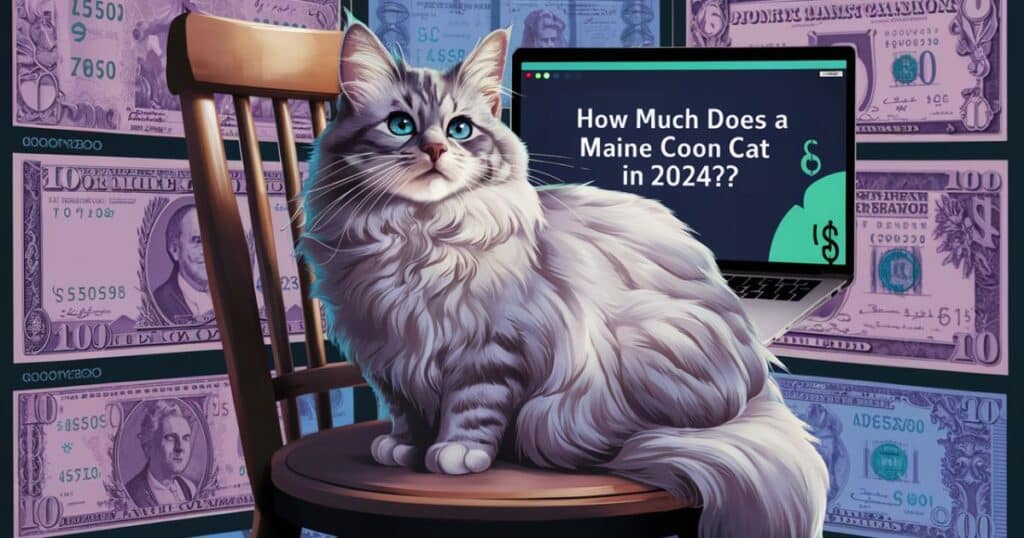As one of the largest domesticated cat breeds, the Maine Coon has captured many hearts with its gentle nature, intelligence, and striking appearance. These furry friends, often called “gentle giants,” are known for their sociable personalities and impressive size. However, as with any pet, there are significant costs to consider before purchasing or adopting a Maine Coon cat. In this comprehensive guide, we’ll explore every aspect of Maine Coon ownership expenses to help you make an informed decision.
What is a Maine Coon Cat?
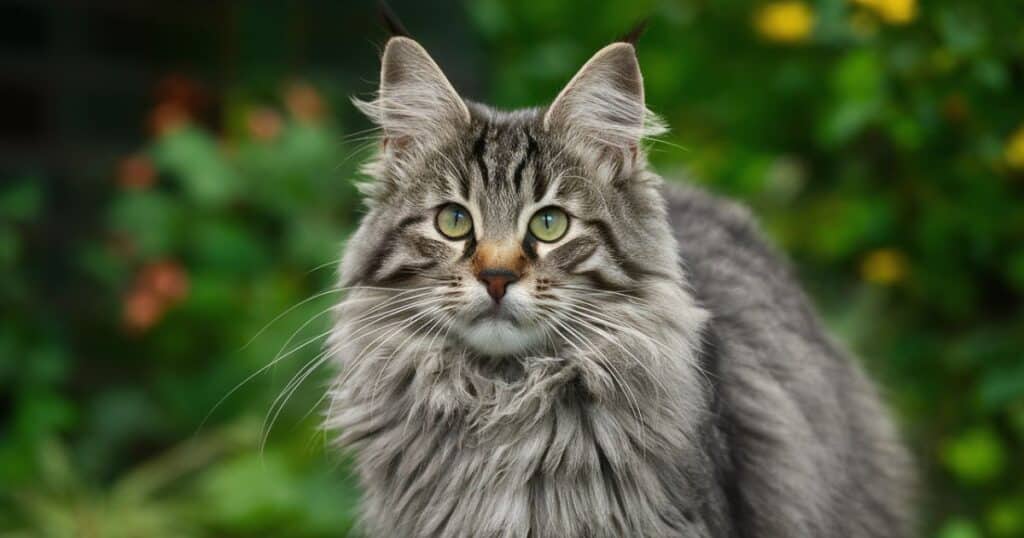
The Majestic Maine Coon: A Brief History
The Maine Coon is a unique domestic cat breed with origins tracing back to the state of Maine in the United States. While their exact ancestry is debated, many believe they descend from long-haired cats brought overseas by New England settlers, potentially mixed with local short-haired varieties.
These felines are distinguished by their large size, with males often reaching 18 pounds or more. They have a thick, shaggy coat that is water-resistant and well-suited for cold climates. Beyond their striking physical traits, Maine Coons are prized for their friendly, intelligent demeanors and playful antics.
Why Buy a Maine Coon Cat?
5 Reasons to Add a Maine Coon to Your Family
- Intelligent, gentle companions: Maine Coons are known for their even-tempered nature and ability to form strong bonds with their human families. Their intelligence makes them receptive to training and engaging activities.
- Hypoallergenic coats: While no cat is truly hypoallergenic, the Maine Coon’s coat produces less of the Fel D 1 protein that causes allergic reactions in many people, making them a better option for some allergy sufferers.
- Family-friendly personalities: With their patience and affectionate dispositions, Maine Coons make excellent companions for households with children and other pets when properly introduced.
- Exercise buddies: These active felines enjoy playtime and will readily engage in interactive games and activities to satisfy their exercise needs.
- Amusing quirks and habits: From their love of water and tendency to “chirp” to their habit of collecting items, Maine Coons are full of endearing and entertaining traits.
While their wonderful qualities are appealing, it’s crucial to understand the financial commitment required when purchasing or adopting a Maine Coon cat. Let’s dive into the costs involved.
ALSO READ: Why Is My Cat Gulping While Purring?
Upfront Maine Coon Costs
How Much Does a Maine Coon Kitten Cost in 2024?
The initial purchasing price for a Maine Coon can vary significantly depending on whether you adopt from a shelter or purchase from a reputable breeder. Here’s a breakdown of what you can expect to pay upfront:
The Affordable Route: Maine Coon Adoption ($0-$400)
Adopting a Maine Coon from a rescue organization or local animal shelter is often the most cost-effective option. Adoption fees typically range from $0 to $400, with an average cost of around $100-$200.
These fees generally cover:
- Spaying/neutering
- Initial vaccinations
- Microchipping
- Deworming treatments
- Basic veterinary checkup
While adoption is more affordable upfront, it’s important to note that you may have less information about the kitten’s lineage and medical history. However, many reputable rescues thoroughly vet their animals and can provide details on their backgrounds.
Pros of Adoption:
- Lower initial cost
- Saving a life
- Mature personalities (for adult cats)
Cons of Adoption:
- Limited availability of Maine Coon kittens
- Potential for unknown medical issues
- Less predictability in terms of temperament and size
The Pedigree Path: Maine Coon Breeders ($1,000-$2,000+)
Purchasing a Maine Coon kitten from a reputable breeder comes with a higher price tag, typically ranging from $1,000 to $2,000 or more. This cost can fluctuate based on factors like the breeder’s reputation, the kitten’s lineage, coat color/pattern, and whether it is being sold as a pet or with breeding rights.
While more expensive initially, purchasing from a breeder offers several advantages:
- Known lineage and genetic history
- Health screenings and guarantees
- Early socialization and handling
- Support and guidance from the breeder
Pros of Purchasing from a Breeder:
- Greater predictability in size, temperament, and health
- Access to pedigree information
- Ability to choose desired coat color/pattern
- Breeder support and resources
Cons of Purchasing from a Breeder:
- Significantly higher upfront cost
- Potential for unethical breeding practices (do your research!)
- Limited availability, waitlists common
It’s crucial to thoroughly research and vet any breeder you consider to ensure they prioritize the well-being of their cats and kittens over profit.
Initial Costs Beyond Purchase
Beyond the initial purchasing price, there are several additional upfront costs to account for when bringing home a new Maine Coon kitten or cat:
Veterinary Care Costs:
- Spaying/neutering (if not already done): $200-$500
- Core vaccinations: $20-$50 per kitten vaccination series
- Flea/tick/heartworm prevention: $100-$200 annually
- Microchipping: $25-$50
- Routine wellness exam: $50-$100
Initial Materials and Supplies:
- Food and water bowls: $10-$30
- Litter boxes: $20-$50 each
- Initial litter supply: $20-$50
- Toys and scratching posts: $50-$100
- Grooming supplies (brush, nail trimmers): $20-$50
- Carrier: $20-$60
- Bed: $20-$100
- Optional health insurance: $20-$90 per month
When factoring in these additional costs, Maine Coon owners should budget at least $500-$1,000 beyond the initial purchase price for those crucial first-year expenses.
Ongoing Maine Coon Expenses
Budgeting for Your Maine Coon’s Lifestyle
While the upfront investments are significant, it’s equally important to plan for the recurring costs associated with keeping a Maine Coon as part of your family long-term. These expenses can add up quickly, so let’s examine the key areas to consider.
Healthcare Costs: Keeping Your Maine Coon Healthy ($405-$1,145 annually)
Maintaining your Maine Coon’s health is an essential responsibility – and cost – for owners. Here’s an overview of common healthcare expenses:
- Routine Veterinary Care: Annual wellness exams, vaccines, flea/tick/heartworm prevention ($200-$400 annually)
- Dental Cleanings: Recommended annually starting around age 2 ($300-$500+)
- Potential Breed-Specific Issues: Maine Coons can be prone to conditions like hip dysplasia, heart disease, and feline obesity, which may require additional testing, treatments, or specialty diets.
Pet Insurance Considerations: To help mitigate the costs of unexpected illnesses or accidents, many owners opt for pet insurance coverage. Premiums for a Maine Coon typically range from $20 to $90 per month, with deductibles and reimbursement levels varying by plan and provider.
While pet insurance adds a recurring expense, it can provide peace of mind and protection against hefty vet bills from emergencies or required medical treatments.
Food Costs: Feeding Your Maine Coon ($20-$50 monthly)
A Maine Coon’s impressive size means they have equally sizeable appetites! High-quality cat food formulated for their needs is essential for proper growth, development, and long-term health.
Food Costs Per Month:
- Wet food: $25-$40 (recommended as a portion of their diet)
- Dry kibble: $15-$30 (grain-free, high-protein formulas)
The exact monthly costs will vary based on the brand and type of food, as well as your cat’s age, activity level, and dietary requirements. Many owners favor a high-protein, low-carb diet, which can increase food expenses.
It’s generally recommended to establish a consistent meal plan and avoid free-feeding Maine Coons to prevent obesity and other weight-related health issues.
Other Recurring Costs: The Incidentals of Maine Coon
In addition to healthcare and food costs, there are several other recurring expenses to factor into your Maine Coon budget:
Litter: Plan to spend $100-$300 annually on high-quality, unscented litter. Maine Coons require larger litter boxes due to their size.
Toys and Enrichment: From wands to scratching posts, budget $50-$200 per year to rotate new toys that keep your intelligent feline entertained.
Grooming Supplies: Their luxurious coats require regular brushing. Proper grooming tools like brushes, combs, and deshedding equipment can cost $30-$100 annually.
Potential Pet Sitters/Boarding: If traveling, you’ll need a pet sitter or boarding facility, averaging $25-$50 per night.
Ongoing Medical Costs: Any diagnosed conditions, medications, or preventative treatments will add to your annual healthcare expenditures.
The estimated total for these incidental costs can range from $300 to $800 or more per year depending on your Maine Coon’s specific needs.
Why So Expensive?
Reasons Behind the High Maine Coon Price Tag
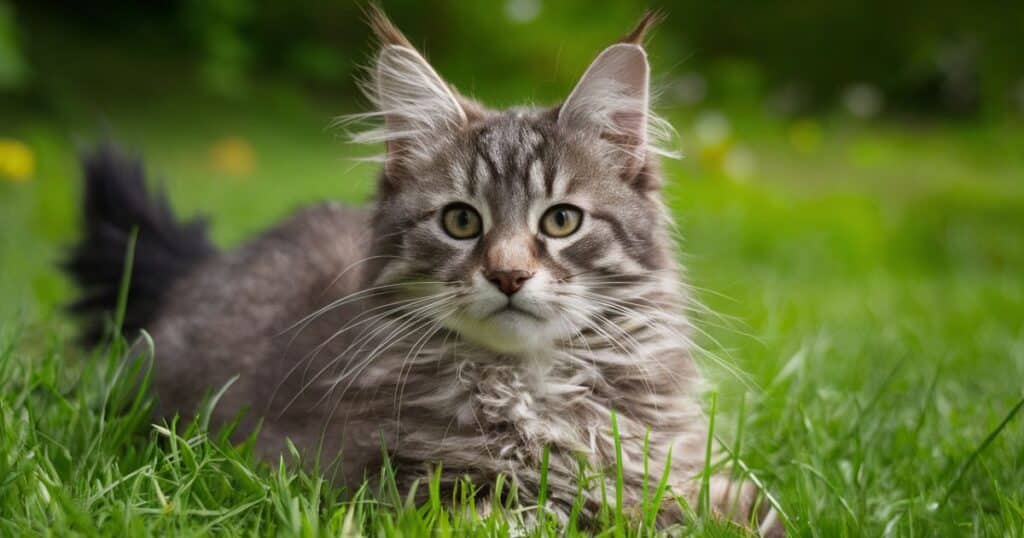
Now that we’ve outlined the costs involved let’s examine what factors contribute to the higher purchasing price for well-bred Maine Coon cats and kittens from reputable sources.
Supply and Demand: The Economics of the Maine Coon Market
Part of what makes Maine Coons pricier is basic economics – they are simply in high demand with a relatively limited supply from ethical breeders. As the breed has grown in popularity, qualified breeders have struggled to keep up.
Maine Coons have lower litter sizes than many other breeds, with an average of 3-5 kittens. Their longer gestation period also means fewer litters per year. This lower output coupled with extensive waitlists drives up their market value.
Breeder Investment: What You’re Paying For with a Well-Bred Maine Coon
Purchasing from a responsible breeder ensures a level of investment that budget breeders or Craigslist sellers cannot match. Reputable Maine Coon breeders have substantial costs in:
Healthcare for Breeding Cats:
- Routine and emergency veterinary care
- Specialized diets and supplements
- Genetic testing to prevent inherited conditions
Cattery Operations:
- Housing, supplies, utilities for proper cattery set-up
- Permits, licenses, certifications, and insurance
Education and Development:
- Attending shows, seminars, and ongoing training
- Maintaining certifications and breed organization memberships
Screening and Vetting:
- Stringent vetting process for prospective owners
- Covering costs of denied sales to ensure kittens go to right homes
The expenses of an ethical, comprehensive breeding program are significant – and those investments produce higher quality, healthier kittens that command premium prices.
Unique Traits: Coveted Characteristics That Increase Maine Coon Value
Like many purebred animals, certain physical traits and distinctive appearances are highly prized in the Maine Coon world – and can increase prices further. These include:
Coat Colors and Patterns: While all coat colors/patterns are accepted, rarer varieties like solid white, blue, or red typically cost more. Striking patterns like tabbies also bring premiums.
Size and Conformation: Following rigorous breed standards for the ideal Maine Coon size and body structure is valued. Larger, well-proportioned kittens may be priced higher.
Personalities and Quirks: Those famous “wiggly” walks, chirping vocalizations, affinity for water – kittens exhibiting distinctive Maine Coon traits are in high demand.
So while the upfront costs seem steep, reputable Maine Coon breeders are not only providing a kitten – they are placing pedigreed felines from well-managed, ethical breeding programs prioritizing the health and well-being of the breed. Purchasing from less reliable sources may be cheaper but poses significant risks.
How to Get the Best Value for Your Maine Coon
Given the considerable initial and recurring expenditures involved, it’s understandable to want to secure the best possible value when purchasing or adopting your Maine Coon companion. Here are some tips to help:
Decoding Maine Coon Price Tags
When reviewing pricing from breeders, be sure you understand exactly what is included. Most will offer a “kitten package” covering:
Health-Related Items:
- Age-appropriate vaccinations
- Deworming
- Spaying/neutering
- Microchipping
- Health certificate/records
- Health guarantee
Luxury Items:
- Starter supply kits (food, litter box, bed, toys etc.)
- Travel carrier or kennel
- Pedigree registration papers
Support For You and Your Cat:
- Guidance on litter training, grooming, diet etc.
- Access to online resources and community forums
- Unlimited breeder support and advice
Delivery Options: If you cannot pick up your kitten directly, fees for transportation/shipping may also be factored into the total price.
Breeding Rights: Kittens sold explicitly with breeding rights approved by the breeder are always more expensive.
Don’t assume all breeders’ offerings are the same – get clartity on what your total purchase price covers.
Do Prices Vary Depending on Age or Gender of the Cat?
In general, age and gender have less impact on pricing directly from reputable Maine Coon breeders. However, there are some typical variations:
Kittens vs. Retirees
Kittens in that prime 12-16 week window forgoing to new homes are usually most expensive, as they are in highest demand.
Retired adult or senior Maine Coons being rehomed from their breeding programs will often cost less, though pricing varies based on Age, quality, accomplishments, and ability to be neutered or bred again.
Males vs. Females
There is little differentiation in price for pet-quality males versus females directly from ethcial breeders who keep waiting lists. However, proven males with distinguished show records or superior breeding quality can command considerably higher fees.
Retirees Cost Less Than Kittens
For prospective owners looking to save some money upfront, a retired Maine Coon from a reputable breeder may be an excellent option at a lower price point, often $500-$800. These adult cats make wonderful family companions.
Just be sure to get full health and behavior histories when adopting a retired Maine Coon. And keep in mind that senior cats can incur higher medical costs in their golden years.
Enjoy With Your Maine Coon Cat
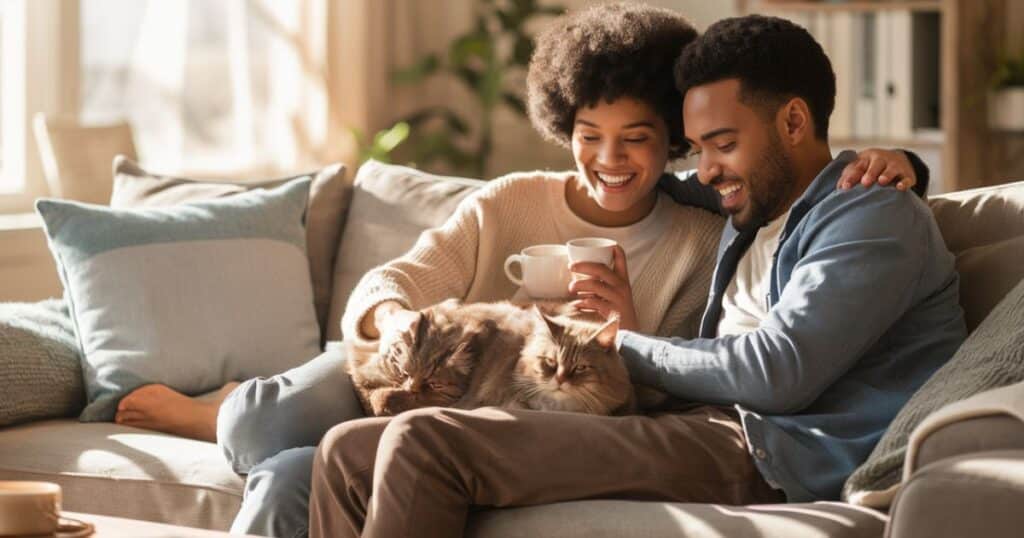
No matter if you choose the adoption route or purchase your Maine Coon kitten from a conscientious breeder, these gentle giants make wonderful companions that enrich our lives immensely. While the costs of responsible ownership are significant, many owners would agree their Maine Coon is utterly priceless.
By understanding the expenses ahead of time and budgeting accordingly, you can provide your feline friend with everything they need to thrive – from first-rate veterinary care and proper nutrition to environmental enrichment and lots of love. With proper research and preparation, the one-time and recurring costs become an investment in over a decade of affection, laughs, and memorable moments with your Maine Coon cat.
Cost Comparison Chart
To help visualize the potential costs, here’s a handy comparison chart outlining common expenses for a Maine Coon cat:
| Cost Category | Lower Range | Higher Range |
| Adoption Fee | $0 | $400 |
| Breeder Purchase Price | $1,000 | $2,500+ |
| Initial Veterinary Care | $300 | $700 |
| Supplies (Litter, Bowls, Toys etc.) | $150 | $400 |
| Annual Routine Vet Care | $200 | $500 |
| Annual Food Costs | $240 | $600 |
| Annual Litter/Supplies | $150 | $400 |
| Pet Insurance (Optional) | $240 | $1,080 |
| First Year Total Cost | $2,280 | $6,580 |
| Annual Recuring Cost After 1st Year | $930 | $2,980 |
As you can see, there is a fairly wide range when it comes to Maine Coon ownership costs. Prospective owners should carefully review their expected expenses in each category based on their individual circumstances.
Questions to Ask Breeders
When vetting Maine Coon breeders, here are some important questions to ask:
- How long have you been breeding Maine Coons?
- What health screenings and genetic testing do you perform?
- Do you provide health guarantees, and what do they cover?
- What is included in your kitten purchase contract?
- How are your breeding cats and kittens housed and socialized?
- What types of food and care regimen do you follow?
- When can I visit and interact with the kittens’ parents?
- What kind of new owner support and resources do you provide?
Their responses (or lack thereof) can reveal a lot about their standards, ethics, and commitment to responsible breeding practices.
Payment Plans and Financing Options
For those who cannot pay the full Maine Coon purchase price upfront, some breeders do offer payment plans that allow the cost to be divided into installments. Be sure to understand any interest rates or fees involved.
There are also third-party pet financing companies like Scratchpay and CareCredit that provide loands specifically for veterinary and pet costs, including breeder purchases. However, the high interest rates on these should be carefully considered.
The bottom line is that while convenient, taking out loans or payment plans for a Maine Coon kitten’s upfront costs will increase the overall expense significantly. It’s advisable to only use financing as an absolute last resort.
Tips for Reducing Costs
While Maine Coon ownership does come with a higher price tag, there are some smart ways to reduce the financial burden:
�bullprice Preventative Care Keeping current on preventative check-ups, vaccinations, dental cleanings and parasite prevention can minimize future medical costs.
🙀 Shop Veterinary Costs Different clinics charge vastly different rates, so shop around for affordable wellness plans and medication costs. Mobile vets can also save money.
🐟 Buy Food in Bulk Opt for buying larger bags of high-quality kibble and cases of wet food to get better per-unit pricing.
💰 Consider Pet Insurance While an added monthly cost, a good insurance plan can tremendously offset unexpected accident or illness expenses.
🛒 Buy Supplies Smart Shop sales, use rebates/coupons, buy gently used items, and opt for lower-cost brands of litter, beds, toys when able.
Hopefully these additions provide even more comprehensive cost information for prospective Maine Coon owners! Let me know if any other sections would be helpful.
Finding Cost-Effective Sources for Maine Coons
While adoption and reputable breeders are the recommended routes, some cost-conscious owners may explore other avenues like:
Craigslist/Online Classifieds
You may find Maine Coons being “re-homed” by owners on sites like Craigslist or Facebook Marketplace. However, be extremely cautious as you have no way to verify lineage, health, or background. Prices can range from $200-$800 but come with substantial risks.
Local Pet Stores
Some pet stores obtain kittens and cats from breeders or brokers to sell. Prices are usually in the $500-$1,500 range but you lose the ability to meet/vet the breeders directly. Health and lineage histories may be limited.
No matter the source, be a savvy buyer – get all available health records, meet the cat in-person, and have your vet examine before finalizing any purchase.
Maine Coon Rescues and Shelters
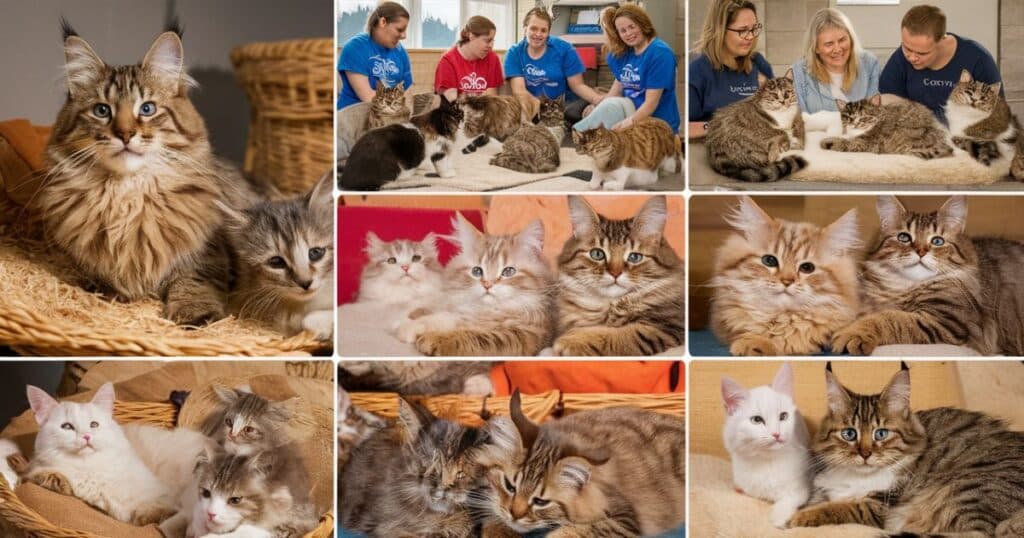
For those set on adoption, there are a number of Maine Coon-specific rescues that may be worth exploring, such as:
- New England Maine Coon Adoptions
- Maine Coon Rescue Network
- Maine Coon Adoptions
Adoption fees from breed-specific rescues can be $200-$500 but you may have better luck finding Maine Coon mixes or retired/older cats. General shelters/humane societies are very hit-or-miss for this breed.
Is Pet Insurance Worth It for Maine Coons?
The decision on whether or not to get pet insurance really depends on your individual financial situation and risk tolerance. Consider factors like:
- Your ability to handle unexpected $1,000-$5,000+ veterinary bills
- The health status/risks of your particular Maine Coon
- Policy coverage details, exclusions, and reimbursement rates
- Whether you select a higher deductible to reduce premiums
Many owners opt for insurance during the kitten years when covering high unexpected costs is most important. As your Maine Coon ages, you may re-evaluate.
Pet insurance isn’t for everyone, but can provide invaluable peace of mind that you can afford to care for your feline friend.
Creative Ways to Offset Maine Coon Costs
For cat owners on tighter budgets, there are some outside-the-box options to reduce expenses:
Start a Pet Savings Account Automatically transfer a small amount to a dedicated pet care fund each month to cover future costs.
Try Freelancing Do online gigs like surveys, freelance writing or coding to earn a Maine Coon care income stream.
Leverage Skills and Services Barter pet sitting, grooming, web design or other services in exchange for reduced medical costs from your vet.
Make Your Own Supplies Researching DIY options for things like toys, beds, scratching posts and even some foods can save money.
Consider a Part-Time Pet Service Job Gigs like dog walking, pet sitting or working at a boarding facility often include discounted pet care.
The bottom line is a Maine Coon costs a considerable amount, but with diligence and creative thinking, owners can find ways to offset some costs in an affordable way.
Conclusion: A Maine Coon is a Priceless Investment
As this in-depth guide has outlined, the costs of responsibly caring for a Maine Coon cat should not be taken lightly. From the upfront purchasing price and initial supplies to recurring medical care, food, and other expenses, prospective owners need to be financially prepared.
By understanding the expenses ahead of time and establishing a realistic care budget, you can provide your Maine Coon with everything they need to thrive – high-quality nutrition, routine veterinary care, environmental enrichment, and plenty of love and playtime. Their affectionate natures, intelligence, and endearing quirks will reward you a million times over.
ALSO READ THIS POST: What Vaccines Do Cats Need To Be Boarded?
So as you embark on finding your purrfect Maine Coon companion, be an educated consumer. Research breeders extensively, ask the right questions, and ensure you are prepared to make this long-term commitment to an amazing breed. With proper planning, the joys of Maine Coon ownership will vastly outweigh the costs.

Davin Connor is an experienced author with 3 years in pets writing. Known for concise, informative content, he shares expertise on pet care, behavior, and health through his engaging articles.
